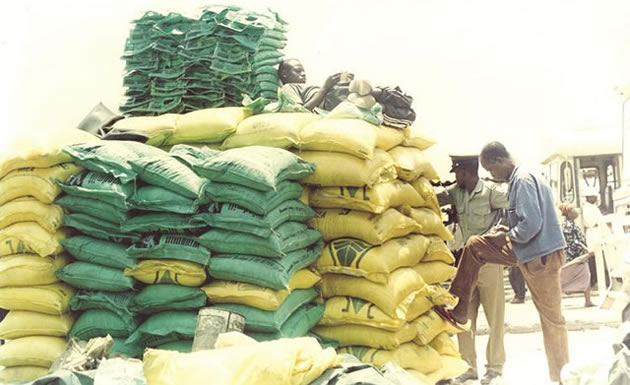Corruption: Time for Zim to walk the talk

 Christopher Farai Charamba Correspondent
Christopher Farai Charamba Correspondent
Corruption may be defined as unethical, dishonest, unscrupulous, mendacious, and/or criminal behaviour carried about by an individual usually in a position of authority or influence, for their own personal interests and benefits.
Corruption is endemic in Zimbabwe.
At all levels, be it in the private or public sector, on the street corners or in corporate boardrooms, at illegal roadblocks or Government offices; different forms of corruption have embedded themselves into the fabric of a plethora of organisations.
After the Salarygate scandal at PSMAS and at State broadcaster ZBC one would have hoped that State-owned enterprises would have cleaned up their act and conducted their business with integrity. Recent reports concerning State-owned mobile operator NetOne, however, show that for the executives running these operations nothing has changed and it is “business” as usual.
Misappropriation of funds, graft and embezzlement are some of the allegations being levelled against suspended NetOne CEO Mr Reward Kangai and his team of executives.
While under Mr Kangai’s stewardship NetOne is alleged to have overpaid a supplier by $500 000 for base stations; more money was apparently siphoned out through questionable procurement of hardware and software material.
And what one may consider the icing on the cake is that the alleged issue of Firstel Cellular, owned by Mr Kangai et al, owing NetOne $11 million.
The question many would ask is how did the situation get here? The answer is unfortunately that Zimbabwe is not tough on corruption!
In 2015 Auditor-General Mildred Chiri on numerous occasions called out Government departments, officials and parastatals for corrupt practices! An audit report of the ministries in February 2015 showed 22 out of the 33 at the time had poor corporate governance, abused funds, flouted procurement procedures and other such corrupt practices.
This figure increased from the previous year, 2014, where 18 ministries were reported in the Auditor-General’s report. One would think that in 2014 when more than half the ministries were said to have acted unethically the situation would have been corrected, on the contrary, it got worse.
From this example one can question whether or not Zimbabwe is tough on corruption. The rhetoric will robustly renounce any form of dishonest practices. However, the action leaves everything to be desired.
Aside from the ministries, the Office of the Auditor-General throughout the course of the past few years exposed corrupt practices in the Central Vehicle Registry where $16,5 million went missing.
The Health Services Board, Basic Education Assistance Module (BEAM), Potraz and Environmental Management Agency among others were all called out for one unethical or fraudulent practice or another. The common thread is that no one was brought to book, at most one received a slap on the wrist and it was business as usual.
Outside the public sector, the private sector has its own fair share of corruption allegations. Last year FlyAfrica was grounded after the Civil Aviation Authority of Zimbabwe suspended its operations.
The CEO of FlyAfrica.com put out a statement saying that the airline was laying criminal charges of fraud and theft against their Zimbabwean partners. The company allegedly did not have an accounting manager, in violation of Statutory Instrument 140.2010.
The lax approach to corruption is the reason why the situation has become so pervasive. This then begs the question as to what measures are actually in place to deal with these issues once they have been raised and how they should be implemented.
One body constitutionally tasked to “Combat Corruption and Crime” is the Zimbabwe Anti-Corruption Commission (ZACC). Article 255 of the Constitution mandates the Commission to investigate and expose cases of corruption in the private and public sectors.
Russian President Vladimir Putin said that “those who fight corruption should be clean themselves”, and unfortunately this is where ZACC has fallen short in the past.
In March 2015 the chief executive officer of the Zimbabwe Anti-Corruption Commission, Ngonidzashe Gumbo, was imprisoned for 10 years for defrauding the commission of $435 000. Gumbo is also a former Senior Assistant Commissioner of the Zimbabwe Republic Police.
The entire ZACC is actually another institution which has come under fire from Auditor-General Chiri as its books were found not to be in order. One can then assume that there were clearly very few “clean” individuals at ZACC.
In February this year President Mugabe swore-in Dr Job Wabhira, a public service commissioner who holds a PhD in jurisprudence as the ZACC chairperson.
The ZACC was also moved from the Ministry of Home Affairs to work out of the Office of the President and Cabinet, a measure taken to stop any interference with the Commission’s operations.
One thing that is certain is that ZACC certainly has a lot of work cut out for it. A quick win would be to revamp of their website which seems to have last been updated in 2012 when Mr Gumbo was still the CEO.
Next on the agenda would be expertly and thoroughly investigating all allegations of corruption that have been brought forward in accordance with their mandate and the Constitution.
The curious case of the looted $15 billion diamond revenue certainly requires immediate attention considering the size of what has been lost.
Following ZACC’s investigations and evidence being gathered, all corrupt individuals caught should be brought to book and face the full wrath of the law. The punishment should also fit the crime, a sentence no shorter than those imprisoned for stocktheft.
If Zimbabwe is to get tough on corruption, it is going to have to start making arrests, it is going to have to show that no one is above the law and that regardless of position, status or wealth, all corrupt individuals must pay the price.
A few days ago a former deputy governor of Hainan Province in China, Ji Wenlin, was sentenced to 12 years in prison for corruption.
Ji is said to have been close to the infamous Zhou Yongkang, a former member of the ruling nine-man standing committee, who last year became the most senior official in the history of the People’s Republic of China to be convicted of corruption and related offences. He was given a life sentence.
Zimbabwe is past the stage of just talking about corruption, but now needs to show the results of this tough talk.
As the country looks East in search of financing and potential investors, it would be prudent to pass through China and borrow a page out of China’s anti-corruption manual.








Comments